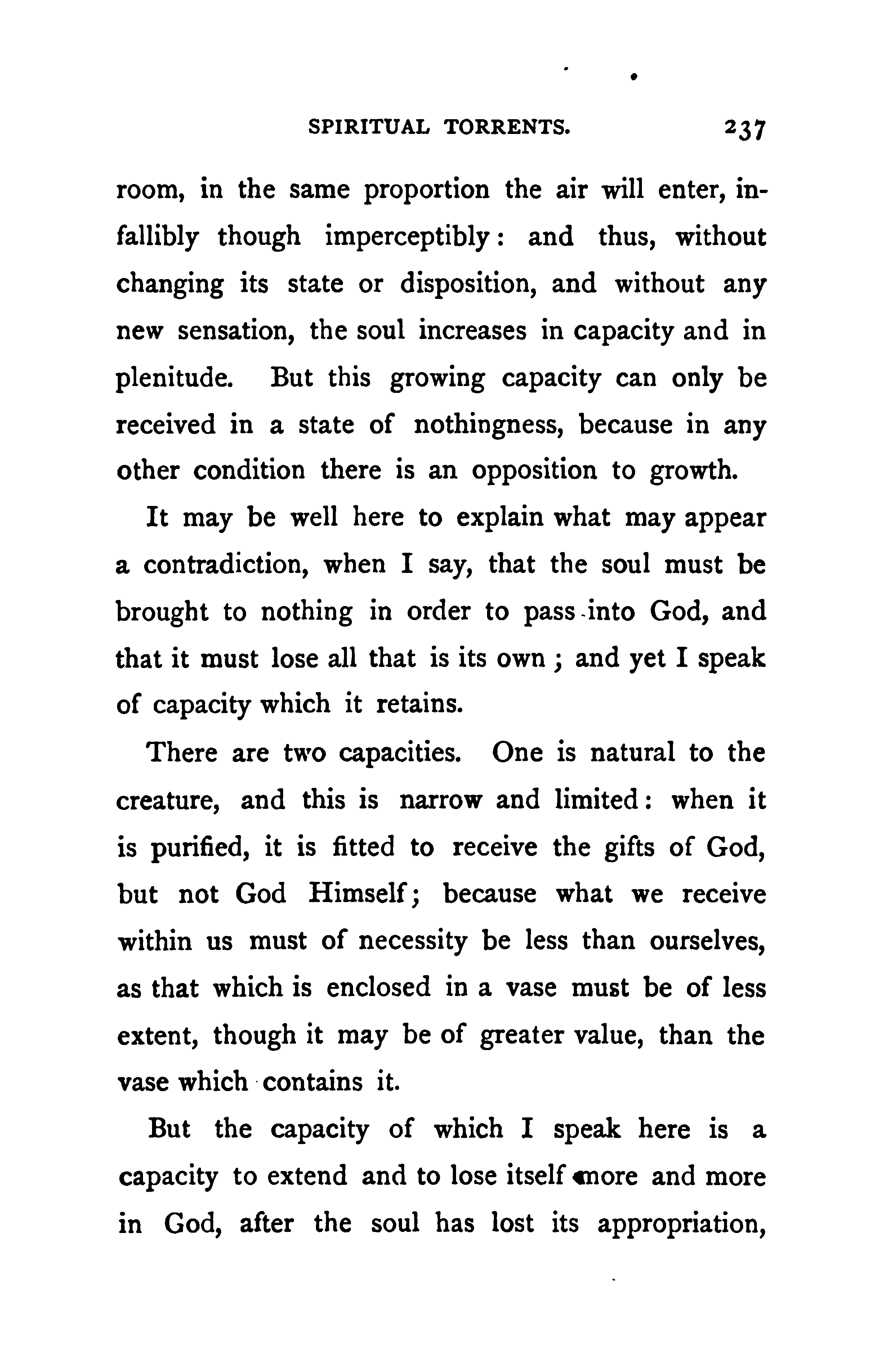room,
in
the
same
proportion
the
air
will
enter,
in-fallibly
though
imperceptibly:
and
thus,
without
changing
its
state
or
disposition,
and
without
any
new
sensation,
the
soul
increases
in
capacity
and
in
plenitude.
But
this
growing
capacity
can
only
be
received
in
a
state
of
nothingness,
because
in
any
other
condition
there
is
an
opposition
to
growth.
It
may
be
well
here
to
explain
what
may
appear
a
contradiction,
when
I
say,
that
the
soul
must
be
brought
to
nothing
in
order
to
pass
into
God,
and
that
it
must
lose
all
that
is
its
own
;
and
yet
I
speak
of
capacity
which
it
retains.
There
are
two
capacities.
One
is
natural
to
the
creature,
and
this
is
narrow
and
limited:
when
it
is
purified,
it
is
fitted
to
receive
the
gifts
of
God,
but
not
God
Himself;
because
what
we
receive
within
us
must
of
necessity
be
less
than
ourselves,
as
that
which
is
enclosed
in
a
vase
must
be
of
less
extent,
though
it
may
be
of
greater
value,
than
the
vase
which
contains
it.
But
the
capacity
of
which
I
speak
here
is
a
capacity
to
extend
and
to
lose
itself
cnore
and
more
in
God,
after
the
soul
has
lost
its
appropriation,

